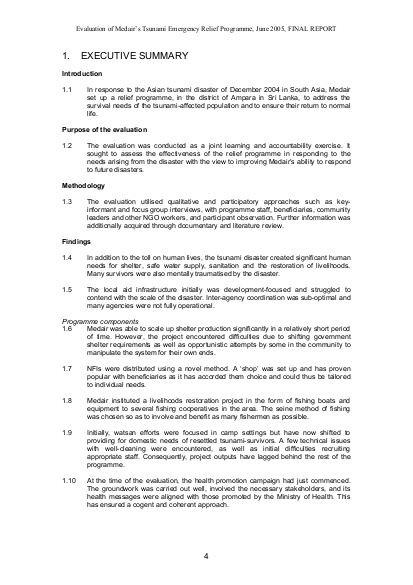Field visit 29 May - 9 June 2005

The evaluation was conducted as a joint learning and accountability exercise. It sought to assess the effectiveness of the relief programme in responding to the needs arising from the disaster with the view to improving Medair’s ability to respond to future disasters. The evaluation utilised qualitative and participatory approaches such as key informant and focus group interviews, with programme staff, beneficiaries, community leaders, and others, as well as direct observation. Further information was additionally acquired through documentary and literature review. In addition to the toll on human lives, the tsunami disaster created significant human needs for shelter, safe water supply, sanitation and the restoration of livelihoods. The evaluation found that: 1) Many survivors were also mentally traumatised by the disaster; 2) The local aid infrastructure initially was development-focused and struggled to contend with the scale of the disaster; 3) Inter-agency coordination was sub-optimal and many agencies were not fully operational.